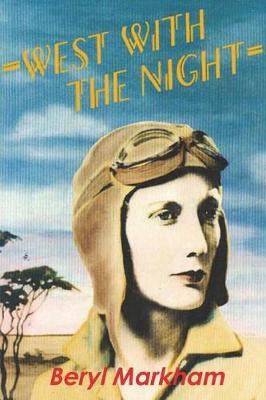Reviewed by brokentune on
It is probably sacrilege to have read West with the Night and not to have loved it more.
To be fair, when I read the book I could hardly put it down. It was a charmingly written memoir of what must have been an extraordinarily interesting person. Beryl Markham was funny, witty, daring, confident, dashing...in short all one would associate with an adventurer. Most strikingly, she was not at all what I would have expected from someone growing up in colonial Africa, where expats are said to have formed an exclusive society about whom history books and literature seem to like reporting in terms of stereotypes and cliches.
Markham was not like that. She grew up in the remote wilderness of Kenya as an equal to the local Nandi and Masai and it seems from her writing that she saw herself as African.
"Competitors in conquest have overlooked the vital soul of Africa herself, from which emanates the true resistance to conquest. The soul is not dead, but silent, the wisdom not lacking, but of such simplicity as to be counted non-existent in the tinker’s mind of modern civilization. Africa is of an ancient age and the blood of many of her peoples is as venerable and as chaste as truth. What upstart race, sprung from some recent, callow century to arm itself with steel and boastfulness, can match in purity the blood of a single Masai Murani whose heritage may have stemmed not far from Eden?"
The book is full of passages that show her reverence for Africa in a way that is neither sentimental nor frightened by the unknown. Africa is Africa - what may seem as drama to European society is just a fact of life. To some extent, Markham even makes fun of the attitudes that seem to long for the theatrical:
"I do not suggest that the lion of the Serengetti have become so blasé about the modern explorer’s motion-picture camera that their posing has already become a kind of Hollywoodian habit. But many of them have so often been bribed with fresh-killed zebra or other delicacies that it is sometimes possible to advance with photographic equipment to within thirty or forty yards of them if the approach is made in an automobile. To venture that close on foot, however, would mean the sudden shattering of any kindly belief that the similarity of the lion and the pussy cat goes much beyond their whiskers. But then, since men still live by the sword, it is a little optimistic to expect the lion to withdraw his claws, handicapped as he is by his inability to read our better effusions about the immorality of bloodshed."
However, on finishing the book, I realised that even though I enjoy reading about her exploits - nearly being mauled by a lion, becoming a racehorse trainer, taking up flying, and organising safaris with Bror Blixen - there was something amiss with the recollection of stories. There was a guarded hesitation about the way she told the stories.
Markham, of course, is known for being a famous aviatrix but she is more famous for being one of the cornerstones of the love triangle described in the oh-so-famous Out of Africa - except that Karen Blixen does not mention her. Markham in return writes much about Denys Finch-Hatton and Bror Blixen, but does not mention Blixen's wife.
So, despite the humorous eloquence of Markham's book, I was left wondering what other relevant details were left out. Not that it is necessary for West with the Night to be a truthful, tell-all memoir. Not at all. It was just that the book seemed to suffer from a lack of credibility once I read more about the characters involved in her life.
Reading updates
- Started reading
- 14 October, 2015: Finished reading
- 14 October, 2015: Reviewed
